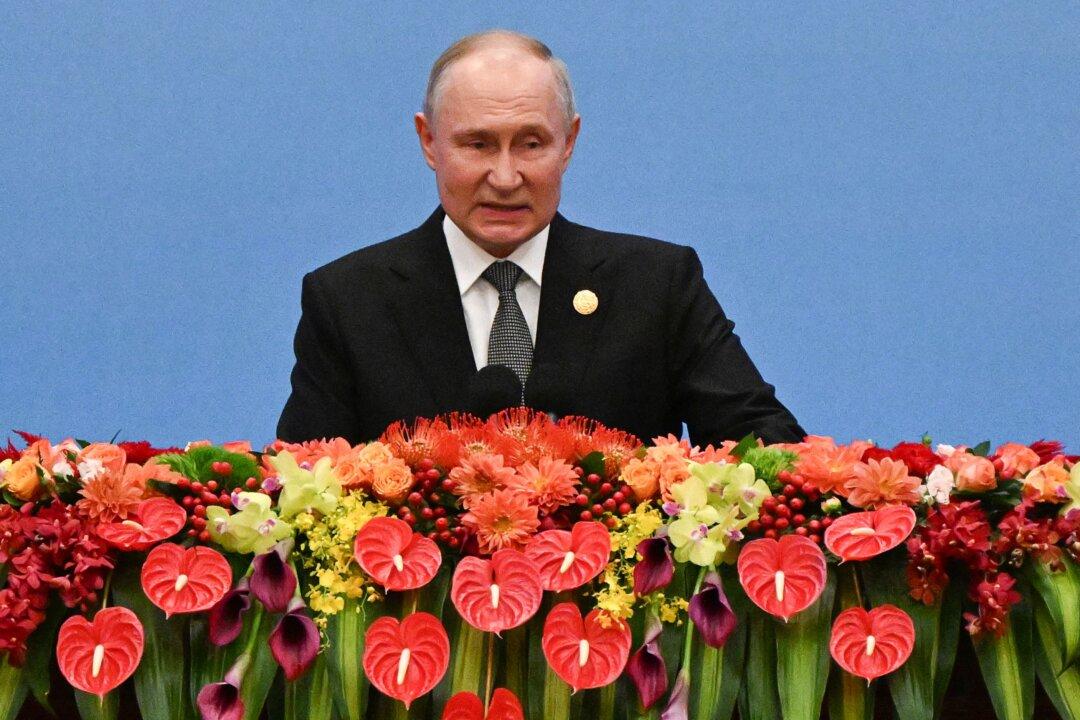Chinese leader Xi Jinping met with his Russian counterpart, Vladimir Putin, in Beijing on Oct. 18, exchanging warm greetings, referring to each other as “old” and “dear” friends, and hailing their deepening “political mutual trust.”
The Russian leader also commended Mr. Xi’s Belt and Road Initiative (BRI, also known as One Belt, One Road) for its supposed role in promoting a “fairer, multi-polar world”—a new world order.





